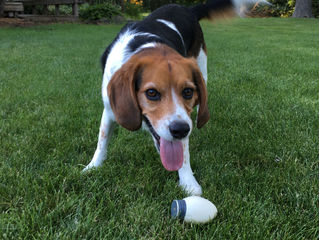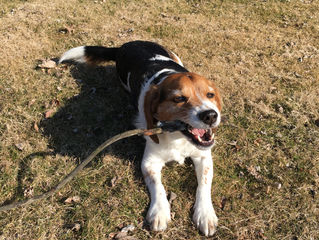

Dog Bite Prevention Week #7: So, what CAN we do to help?
All week long we've been discussing dog bite prevention, and how we can handle dogs who are behaving aggressively or biting. And yes,...


Dog Bite Prevention Week Myth #6: "Most dog bites are by strange dogs."
When we hear about someone getting bitten by a dog, we often picture a stray mongrel roaming the mean streets, and attacking an...


Dog Bite Prevention Week #5: "Aggression can be fixed."
Is aggression something that can be fixed or cured? This is something that I have a lot of heart to heart talks with students over, and...


Dog Bite Prevention Week Myth #4: "You must punish a growl to stop aggression in it's track
Today's post is about a long-held myth: that you need to punish a dog for growling. If a dog growls, it's our knee-jerk reaction to want...


Dog Bite Prevention Week Myth #3: "A dog that is behaving aggressively needs to be sent away to
This one is my new "soap box" topic since it seems like every day a new board and train is popping up around me. Listen, I totally get...


Dog Bite Prevention Week Myth #2: "An aggressive dog thinks he's dominant and needs to be p
The dominance myth. So we meet again. I spend a LOT of my time as a dog trainer helping my students understand that their dog's...


Dog Bite Prevention Week Myth Busting #1: "Nice dogs don't bite".
This year for dog bite prevention week (April 8th-14th) I'll be writing one blog post a day on commons myths about dog bites and...




































